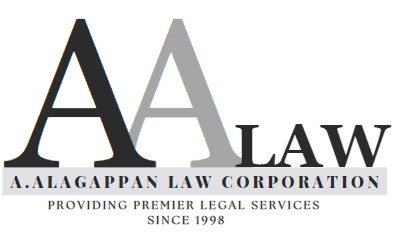
Advocates & Solicitors ι Notary Public ι Commissioner for Oaths
Our Services >
Practice Areas >
Criminal Law
Criminal Law
We advise and represent clients in cases on the spectrum of criminal matters, ranging from simple theft matters to contentious murder proceedings and complex white collar crime disputes such as corruption, corporate fraud (including breach of trust, cheating and forgery) offences under the Computer Misuse Act and breach of fiduciary duties.
We help liaise with the police, make representations to the Attorney-General's Chambers for the withdrawal or reduction of charges, prepare and submit mitigation pleas and interview witnesses and collates evidence for criminal trials in our clients’ best interest.
ARREST & BAIL
Arrest
When Can You Be Arrested
Arrest is carried out when the police reasonably suspect you of committing a serious offence and wishes to take you into custody for investigations or to charge you in Court. A few examples of such offences are: trafficking, possession or consumption of drugs, rape, outraging of modesty, theft, robbery, cheating, criminal breach of trust, rioting and causing serious hurt.
How is an Arrest Made
This is done by informing you that you are arrested and by touching or by holding you if you are likely to attempt an escape. In such a case, you will usually be handcuffed. Unless you willingly submit to custody, reasonable force may be used to arrest you. You may ask the officer for his/her official identification and the reason for your arrest.
What Happens After You are Arrested
On arrest, you may be searched and brought to a police station for questioning. Pending questioning, you may be detained in a lock-up. You will be required to surrender whatever you have on you. A list of these things will be made and you will be asked to confirm it. A copy of this list will be given to you.
You may be detained for a maximum period of 48 hours from the time of your arrest. If the officer wants to detain you for more than 48 hours, he must bring you to Court. During this period you may be taken out for searches.
In Court, the officer must tell the Judge why he wants to detain you further. The Judge will consider the reason/s given and then decide whether you are to be further detained.
If the police or other officers do not wish to detain you for more than 48 hours they will let you go on a personal promise or put you on police bail to make sure you go back to the station or attend Court when told to do so.
Being Charged for an Offence After Arrest
You may be arrested before, during or after investigation. You may be required to give a statement. If the police decide to charge you, they will ask you to sign a cautioned statement asking you to state your defence. If you have a defence, you should always say so in the cautioned statement. Your defence may not be believed if you fail to mention it in the cautioned statement but raise it later at trial.
If you are formally charged, you will be produced in Court. If you are to be charged in Court, your fingerprints may be taken by an officer and you may be photographed at the Criminal Records Office, Criminal Investigation Department (CID). This means that there will be a record of you at the CID.
However, if you are acquitted of the offence in Court or if the charge is withdrawn, you can write to the CID for the return of the record of your fingerprints and negatives.
Telling Your Family or Lawyer of Your Arrest
When you are arrested and detained you can request to make a call to your family or a lawyer telling them of your arrest. You may also request visits by your family or a lawyer. These requests may be refused if it will interfere with the investigation carried out by the officers. The law allows you to consult a lawyer of your choice.
Bail
What is Bail?
Bail is a form of property deposited or pledged by you, as the bailor, either with the police or the courts in order to secure the release of an accused person from remand prison on the understanding that you will ensure that the accused will return to court for the hearing until the final completion of the case.
What are the common types of bail?
The two common types of bail are:
(a) bail granted by the prosecuting agency (commonly known as ‘Police Bail’); and
(b) bail granted by the courts (commonly known as ‘Court Bail’).
Does this mean an accused person cannot be his own bailor?
Yes, unless the Court directs otherwise.
Who can offer bail?
The prosecuting agencies, including the Police, the Commercial Affairs Department, the Corrupt Practices Investigation Bureau, and the courts can offer bail. If no bail is offered by the prosecuting agencies, the accused may still make an application to the court for bail to be offered when the case is first heard in court.
Who can be a bailor?
You can be a bailor if you are:
- Aged 21 years and above
- Not a bankrupt.
- No pending case in the courts
- A Singapore citizen or a Permanent Resident of Singapore
- Prepared to accept the responsibilities of a bailor until the case is over
- Prepared to pledge security whether in cash or in personal properties for the amount of bail as ordered by the Court.
What if there is no suitable bailor?
An accused will have to remain in remand prison pending hearing of his case if there is no suitable bailor.
Can the accused still be bailed out later even though he was initially unsuccessful in getting a bailor? If so, what is the procedure?
The accused may be bailed out at any time provided that bail has been offered. A willing bailor should then personally attend at the prosecuting agency (for Police Bail) or at the Bail Centre of the State Courts (for Court Bail) with the necessary documents and security required.
What are the usual conditions that may be imposed before bail is offered?
The prosecuting agency or the Court may impose the following conditions:
- The accused’s passport be surrendered
- Requiring that accused person be only able to leave at and/or shall return to his home by a certain time
- Requiring the accused to report to the Investigation Officer (‘IO’) on certain days of the week
- Requiring that that there be only one or more bailors
- That only cash may be used as security for bail.
What are the responsibilities of a bailor?
A bailor’s key responsibility is to ensure that the accused attends all court hearings at the required time and date until the case has been concluded. If the accused fails to attend a court hearing, the full bail amount pledged as security may be forfeited. The bailor must also ensure that the accused does not leave Singapore without the Court’s permission.
What documents must a bailor bring if the bail is being processed at the prosecuting agency and/or Bail Centre?
- The bailor must bring along with him the following documents:
- The bailor’s Identity Card or Passport
- The accused’s passport (if it is required by the prosecuting agency or the Court as a condition of bail)
- The documents as stated in S/N 12 below and depending how the bailor wishes to furnish the bail sum.
What if the bailor cannot speak English?
Court Staff will assist those who are not able to speak English but are able to converse in Malay, Mandarin, local Chinese dialects and Tamil.
What can the bailor pledge or deposit to the court as security for the bail amount?
In addition to cash, the bailor may pledge:
- Fixed or Time Deposit. This is provided the bailor is the account holder with at least 6 months before its maturity, and that the sum has not already been used as a form of security
- Monies in the savings account. This is provided there are no deductions made from that account for GIRO or any other payment. The updated savings passbook or bank statement, must be brought to the prosecuting agency or Court offering bail as the case may be
- Cashier’s Order. This should be made payable either to the prosecuting agency (for Police Bail) or the “Registrar, State courts” (for Court Bail) for the exact bail amount
- NETS payment. This is through the bailor’s own ATM card. Please note that for ATM cards, there may be a maximum withdrawal up to $2,000 per day
- Bailor’s personal properties not exceeding $15,000.
Note: If the bailor is using cash, a copy of his bank statement (indicating Name and NRIC No. of account holder & Account No.) must be provided either to the prosecuting agency (for Police Bail) or the Bail Centre (for Court Bail).
Can the bailor pledge money or assets that belong to the accused person as security for bail?
No. The monies and properties must belong to the bailor.
Can the bailor still use his bank account, fixed/time deposit as he wishes after he has pledged the amount as bail sum?
No. In addition, the bank will be notified to freeze the bank account/deposits
What if the bank account has joint names?
Joint account cannot be used as security by one account holder. To utilize such an account as bail sum, both account holders will have to be bailors.
When will the bailor get the bail monies back?
When a case has concluded or if the bailor has been granted a discharge, the bailor may obtain the return of the full sum of bail monies deposited. For Court Bail, if cash was deposited with the State courts, the bail amount would be directly refunded to the bailor by the Accountant-General by way of crediting directly into the bailor's bank account furnished by the bailor at the point of standing bail. The bailor may enquire from the Finance Section (Tel: 6435-5869) of the State courts should there be any further queries. For Police Bail, the bailor can contact the IO assigned to the case for more information on refund of bail sum.
What if the bailor no longer wishes to stand as bailor for the accused person?
The bailor will have to apply in writing (min. 1 week in advance) to the Court for the application to be heard. During the court mention, the bailor must be personally present together with the accused for the application to discharge as bailor. Once the bailor is discharged, to secure the release of the accused pending hearing, the accused must arrange for a substitute bailor.
Can the accused leave Singapore after bail is given?
The accused person may only leave Singapore with the permission of the Court. Both the bailor and the accused must be present when the application is made to leave jurisdiction. The application can be made at the next court mention. If it is urgent, the accused can request in writing to the Court seeking an early date to make the application. In such instances, it is common for the Court to increase the bail amount to allow the accused to leave jurisdiction.
What if the accused person fails to turn up in court as required?
If the accused fails to attend Court as required, a Warrant of Arrest may be issued against the accused. The bailor will also have to attend a hearing to explain why the full bail amount should not be forfeited. The latter is commonly known as a hearing for the Bailor To Show Cause.
Will fresh bail be offered after an accused person is first charged in court?
Whether the original Police Bail will be extended or fresh Court Bail offered is at the discretion of the Court.
When should the bailor attend court?
- The bailor should attend court:
- At the first court hearing of the accused person, where possible
- If the bailor wishes to apply to the court to discharge himself as a bailor
- If the accused wishes to make an application to the Court to leave Singapore
- Where the bailor has been asked to Show Cause why the bail monies should not be forfeited as a result of the accused failing to attend a court hearing.
Can the bailor later ask for the bail amount to be lowered?
The application may be made through the accused. The granting of such an application is rare.
What if the assets that the bailor pledged are insufficient to meet the bail amount forfeited?
When the bail amount is forfeited and the assets sold are insufficient to meet the forfeited bail amount, the bailor will have to pay the difference. If the bailor does not pay, enforcement action will be taken.
Is there a channel to request to review or appeal on bail related matters?
There is no channel to appeal against a decision on the bail offered for Police Bail before an accused is charged in court. If an accused has been charged in court, and it is felt that either bail ought to have been offered or that a lower sum of bail ought to have been offered, the accused can request for a bail review to be conducted. If the bail amount was forfeited whether in full or in part, the aggrieved bailor may appeal to the High Court against the forfeiture.
Where is the Bail Centre?
The Bail Centre is at the Crime Registry of the State courts. The Crime Registry is located on the ground floor of the State courts, 1 Havelock Square, Singapore 059724.
What are the operating hours of the Bail Centre?
Mon-Thu 9.00AM - 6.00PM (Last registration at 12.30 pm & 5.00 pm)
Fri 9.00AM - 5.30PM (Last registration at 12.30 pm & 4.30 pm)
Sat 9.00AM – 1.00PM (Last registration at 12.00 pm)
Where can I obtain more information if I have further questions?
More information can be obtained from State courts’ website at www.statecourts.gov.sg. You may also call the Bail Centre at 6435-5928 or attend at the Bail Centre in person.
(adopted from Law Society of Singapore)

